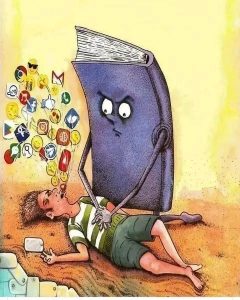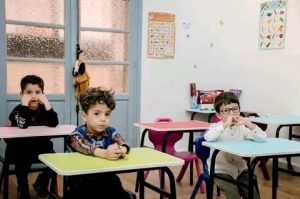Intelligence test for children

Intelligence test for children, learn 5 things about intelligence tests, are they not useful?
Discover the truth about intelligence tests for children. Learn 5 key insights and explore their usefulness in assessing young minds on our informative site.
Uncover the facts about children’s intelligence tests. Explore five essential aspects and determine their value in understanding a child’s potential.
Are intelligence tests for children really useful? Learn five crucial insights about their effectiveness and role in child development on our website.
Intelligence Tests for Children: A Comprehensive Guide
Introduction Intelligence for children
Intelligence test for children, learn 5 things about intelligence tests, are they not useful?
Intelligence tests for children are an important tool for assessing a child’s mental and learning abilities. Intelligence tests can help determine a child’s strengths in various areas, such as language, mathematics, and memory. In this article, we will discuss intelligence tests for children, discussing the types of tests, their importance, and their results.
Discover the truth about intelligence tests for children. Learn five key insights and explore their usefulness in assessing young minds.
Uncover five essential facts about children’s intelligence tests. Are they truly beneficial? Find out how these assessments impact learning and development.
Explore the world of intelligence tests for children. Learn five important aspects and evaluate their effectiveness in understanding a child’s potential.
The first person to use an intelligence test for children was the French psychologist Alfred Binet in 1904. Binet was working at the University of Paris and was appointed by the French Ministry of Education to create a test that could help identify children who needed additional educational support.
Binet created an intelligence test that became known as the Binet-Simon test. This test aimed to measure children’s mental abilities, such as memory, reasoning, and language.
The Binet-Simon test contained a series of questions and exercises designed to measure children’s mental abilities. The test had four sections: memory, reasoning, language, and learning.
The Binet-Simon test was a revolutionary test in the field of psychology and was widely used in schools and universities. The test has been modified and updated several times over the years, but the basics developed by Binet are still used today.
It is worth noting that Binet did not believe that his test measured “intelligence” per se, but rather that his test measured mental abilities that could help children learn.
Intelligence test for children.
1. Types of Intelligence Tests for Children:
Intelligence test for children, learn 5 things about intelligence tests, are they not useful?
There are several types of intelligence tests for children, including:
1. Stanford-Binet Test:
This test is one of the most widely used tests to assess intelligence in children. It assesses a child’s abilities in the areas of language, mathematics, and memory.
2. Wechsler Test for Children:
This test is another test used to assess intelligence in children. It assesses a child’s abilities in the areas of language, mathematics, and memory.
3. Raven’s Advanced Test:
This test is used to assess intelligence in children aged 5-11 years. It assesses a child’s abilities in the areas of language, mathematics, and memory.
2: The Importance of Intelligence Testing for Children:
Intelligence test for children, learn 5 things about intelligence tests, are they not useful?
Intelligence testing for children is an important tool for assessing a child’s mental and learning abilities. Intelligence testing can help:
1. _Identifying a Child’s Strengths_:
Intelligence testing can help determine a child’s strengths in various areas, such as language, mathematics, and memory.
2. _Identifying Weaknesses_:
Intelligence testing can help identify a child’s weaknesses, such as difficulty with language or mathematics.
3. _Developing Educational Programs_:
Intelligence testing can help develop personalized educational programs for the child, which can help them improve their mental and learning abilities.
3: Intelligence Test Results for Children:
Intelligence test results for children can be useful in identifying a child’s strengths and weaknesses. Test results can help in:
1. _Developing Educational Programs_:
Test results can help develop personalized educational programs for the child, which can help them improve their mental and learning abilities.
2. _Identifying a Child’s Needs_:
Test results can help identify a child’s needs, such as the need for additional support in language or mathematics.
3. Assessing a Child’s Progress:
Test results can help assess a child’s progress and determine whether they need additional support in certain areas.
4: Who was the first to use an intelligence test for children?
The first person to use an intelligence test for children was the French psychologist Alfred Binet in 1904. Binet was working at the University of Paris and was appointed by the French Ministry of Education to create a test that could help identify children who needed additional educational support.
Binet created an intelligence test that became known as the Binet-Simon test. This test aimed to measure children’s mental abilities, such as memory, reasoning, and language.
The Binet-Simon test contained a series of questions and exercises designed to measure children’s mental abilities. The test had four sections: memory, reasoning, language, and learning.

The Binet-Simon test was a revolutionary test in the field of psychology and was widely used in schools and universities. The test has been modified and updated several times over the years, but the basic principles Binet developed remain in use today.
Intelligence test for children, learn 5 things about intelligence tests, are they not useful?
It is worth noting that Binet did not believe his test measured “intelligence” per se. Rather, he believed it measured mental abilities that could help children learn.
5: Interpreting Children’s Intelligence Test Results:
Intelligence test for children, learn 5 things about intelligence tests, are they not useful?
Children’s intelligence test results should be interpreted carefully and accurately. The child’s strengths and weaknesses should be identified, and customized educational programs should be developed for the child. The child’s progress should be assessed regularly, and educational programs should be modified as needed.
The Importance of Interpreting Children’s Intelligence Test Results:
Interpreting children’s intelligence test results is very important. It can help:
1. Identifying a Child’s Strengths:
It can help identify a child’s strengths in various areas, such as language, math, and memory.
2. Identifying Weaknesses:
It can help identify a child’s weaknesses, such as difficulty with language or math.
3. Developing Educational Programs:
It can help develop customized educational programs for the child, which can help them improve their mental and learning abilities.
4. Evaluating a Child’s Progress:
It can help evaluate a child’s progress and determine whether they need additional support in certain areas.
IQ testing for children is an important tool for assessing a child’s mental and learning abilities. Intelligence testing for children must be conducted carefully and accurately, and test results must be interpreted with care and precision. Test results must be used to develop personalized educational programs for the child, and the child’s progress must be evaluated regularly.
Conclusion
Intelligence testing for children is an important tool for assessing a child’s mental and learning abilities. Intelligence testing can help identify a child’s strengths and weaknesses and develop personalized educational programs for the child. Intelligence testing for children must be conducted carefully and accurately, and the test results must be interpreted with caution and precision. The test results must be used to develop personalized educational programs for the child, and the child’s progress must be regularly evaluated.
Intelligence test for children.

